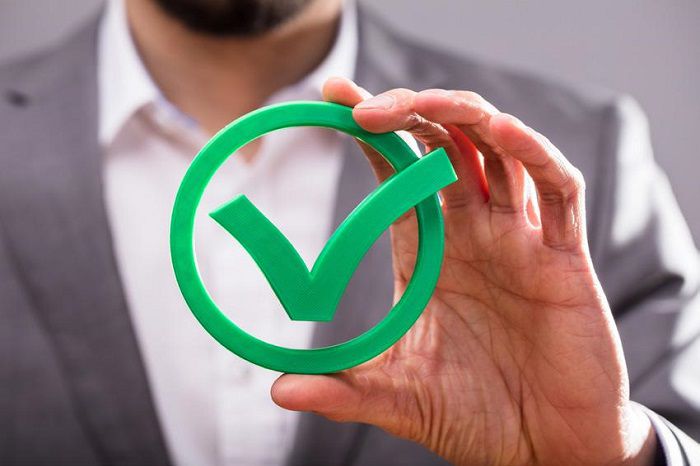How to ensure that your broker is trustworthy
Finding a trusted broker is essential.。But most of the time, brokers don't tell the truth, so it can be hard to know if they're actually legitimate。

The foreign exchange market is the largest financial market in the world.。Forex trading is now more convenient than ever thanks to the advent of the internet and online brokers。As long as you have a certain amount of money and a stable network connection, you can start trading anywhere。In addition, today's traders can trade in a variety of currencies, from the popular dollar and euro to more exotic currencies such as the Russian ruble and Mexican peso.。
However, in such a crowded market, it is almost inevitable for malicious actors and cybercriminals to find ways to obtain funds through illegal means.。The huge daily trading volume does make the forex market attractive to many types of crooks。Therefore, as traders, we need to take precautions。In this article, we will introduce some simple ways to check whether a broker is legitimate。
Are brokers regulated?
First, you need to ensure the legitimacy of the broker。Fraud brokers are mostly unregulated because they are not required to report to regulatory authorities。They will lure you into their trap to some extent.。For example, you may encounter some "glitches" that cause you to experience negative slippage, or you may request a withdrawal but never get your money back。When that happens, there's nothing you can do about it other than give bad reviews online。Authorities will not protect you either because such brokers are beyond their jurisdiction。
The easiest way to check a broker's registration is to look at the bottom of their website or click on the "About Us" button。Regulated brokers must provide regulatory information along with appropriate risk disclaimers on their websites, so it should be easy to find。The next step is to scrutinize the institutions that regulate brokers。All you need to do is visit the website of the regulatory body and search for the registration number of the broker。
Watch out for danger signals
Before registering with any broker, you need to conduct your own investigation to find out if the broker is showing some signs that could lead to fraudulent activity。In addition to the regulatory status of the broker, you can also look for other information on the broker's website。For example, look at the broker's head office address, company history, and financial policies。If this information is unclear or unavailable, it is likely to be a scam。Keep in mind that scam brokers often hide their identities so they don't reveal any names, locations or contact information in case they get in trouble。
In addition to this, be sure to check the broker's promotions and bonuses。If they promise you unusually high returns but don't show details of the terms and conditions, chances are you're dealing with a scam broker。In addition, if you try to get more details about the offer, the website will usually take you back to the registration page。
Read user reviews
In addition to the broker's website, social media is also an excellent channel for you to get to know the business。Often, companies and forex brokers use social media to build their own credibility as they can promote their business and interact directly with their clients.。However, social media is definitely not a good place for scam brokers。
Most traders are quick to talk about their experiences via their social media accounts。Therefore, by browsing the reviews and opinions of other users, you may get an idea of who the broker is and what services it offers。Just log in to popular social media like Instagram, Twitter or Facebook and type the name of the broker in the search bar before typing the word "scam"。Check and analyze results。
Test Customer Service
Fraud brokers never really care about their clients because their aim is simply to attract as many clients as possible, steal their wealth and get away with it。Therefore, you need to check the reliability of the broker by testing customer service。You can simply ask them a few questions before signing up to see how they answer。If they take too long to answer questions or do not help, you may need to change to a broker。
Test Broker
Last but not least, it is worth noting that even if you register with a so-called legitimate broker that passes all the above points, you still need to be cautious。It is recommended that you start with small transactions and test the broker。During this process, keep an eye on trade execution and regularly monitor your trading progress。After that, try to withdraw money。If the broker takes a long time to process your request and even refuses to let you withdraw money, you may have encountered a scam。
SUMMARY
In a word, there are many things to consider before signing up for a broker。The key is to conduct appropriate independent research and make your own analysis based on the data collected。If you have any questions, please do not hesitate to contact the broker to see if they can help。
In addition to this, you can join a community forum to discuss your options or seek advice from a knowledgeable third party or other professional。Also, if something is not as good as it really is, then it is likely to be true。Keep in mind that many brokers may offer extremely attractive features, but not all brokers can provide reliable services。
Disclaimer: The views in this article are from the original Creator and do not represent the views or position of Hawk Insight. The content of the article is for reference, communication and learning only, and does not constitute investment advice. If it involves copyright issues, please contact us for deletion.